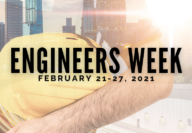by Elizabeth Orizaga
During the best of times, running a business can be challenging. In the times of a global pandemic, those concerns have been skewed toward employee and client safety, and rightfully so, as they should always stay in focus of every business operation. While one public health issue is at the forefront of everyone’s mind right now, it’s clear that the State of California is also focused on another health concern, and that’s upholding a high standard of water quality.
At the beginning of 2020, California enacted Senate Bill 205, which requires businesses to comply with the Industrial Storm Water Permit before a business license is issued for new businesses or renewed for existing businesses. This legislation has been passed to support statewide implementation of the Clean Water Act. Under the new bill, businesses must demonstrate compliance with the National Pollutant Discharge Elimination System (NPDES) Permit Program, and if they cannot, they will be afforded three months to comply with regulations. If California businesses are unable to satisfy these requirements, then governing agencies can deny their business license or renewal.

Since this legislation is fairly new, and with the current public health issues we are experiencing throughout the country, storm water inspectors are lagging behind a bit, but that does not mean this lag will continue. The State has clearly made regulating and enforcing this new storm water law a matter of high importance, so it is necessary to take the steps to comply with the recently passed regulations. Registering for the Industrial Storm Water Permit involves completing a Notice of Intent (NOI), preparing a Storm Water Pollution Prevention Plan (SWPPP), and complying with the requirements of the Permit, which includes conducting training, completing inspections, sampling, and reporting in a statewide online database.
Fuss & O’Neill has worked with many clients (both English and Spanish-speaking) throughout the country and in California specifically to achieve compliance with industrial storm water regulations. When you are navigating these waters (pun intended), our team can help you through the permitting process, and we will work with your staff to identify any potential concerns with impaired waters or total maximum daily loads (TMDL), which are also rooted within the Industrial Storm Water Permit. We are well versed in helping clients cost-effectively comply with state permits and to reduce the likelihood of litigation from third party environmental groups. Our team can also develop innovative storm water controls or address water quality challenges as required.
Do your part in protecting your business, and the environment, by taking a proactive approach to storm water management and permitting.
About the Author
 Elizabeth Orizaga is an Environmental Scientist working out of Fuss & O’Neill’s Irvine, CA office. She is passionate about helping industrial clients achieve compliance with storm water and other environmental permits.
Elizabeth Orizaga is an Environmental Scientist working out of Fuss & O’Neill’s Irvine, CA office. She is passionate about helping industrial clients achieve compliance with storm water and other environmental permits.




